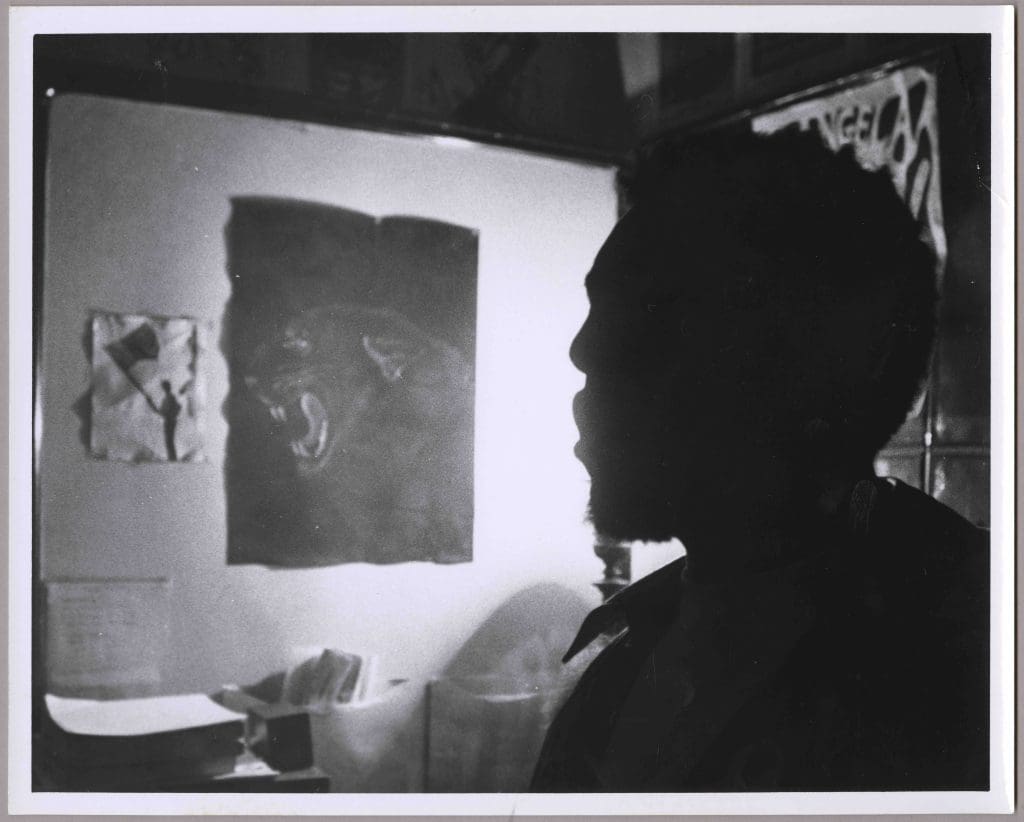The exhibit “Revolution in Our Lifetime”: The Black Panther Party and Political Organizing in Baltimore, 1968–1974, on view at The Peale, has been extended through July 7, 2024.
Due to overwhelming interest and positive media attention, the curators and the museum have decided to keep the exhibit open for six more weeks to allow as many visitors to see it as possible.
Some of the recent coverage of the exhibit is:
- Baltimore Beat: “The Indelible Impact the Baltimore Black Panthers,” June 11
- WMAR: “Revolution in Our Lifetime: The Black Panther Party and Political Organizing in Baltimore,” May 30
- The Hub: “Hopkins, Morgan State Students Collaborate on Black Panther Exhibit at The Peale,” May 14
- Robert L. Bogomolny Library blog: “A Librarian’s Perspective: Black Panthers at the Peale,” April 29
- JHU News-Letter: “Revolution in Our Lifetime” Exhibition highlights the history of The Black Panther Party in Baltimore,” April 24
This exhibit, curated by a team of students from Johns Hopkins University and Morgan State University and Hopkins faculty, is co-sponsored by the Chloe Center for the Critical Study of Racism, Immigration, and Colonialism, the Center for Africana Studies, and Inheritance Baltimore: Humanities and Arts Education for Black Liberation. It opened with a panel discussion on April 12.
Full details of the exhibit below.

“Revolution in Our Lifetime”: The Black Panther Party and Political Organizing in Baltimore, 1968–1974 explores the founding, programs, and everyday activities of the Black Panther Party’s Baltimore chapter, as well as the party’s ideological foundations and state repression it experienced. The exhibit further examines the party’s links to other political organizations in the city within the broader context of political organizing in the period. The exhibit features rare artifacts, documents, and photographs, as well as copies of the party’s newspaper.
The exhibit examines the persistent racial segregation and bigotry that shaped the city and animated Black political organizing. Visitors will learn about the power of grassroots organizing against racism, as well as how regular people made demands for revolution in Baltimore. The Baltimore chapter’s history also illustrates how police mobilized copious resources to undermine and destroy the Black Panther Party.“Revolution in Our Lifetime” also addresses legacies and provides contemporary lessons from this era of political ferment in Baltimore.
Visitors can expect four main sections:
- “The Seeds of the Revolution: Children and Childhood in the Baltimore Chapter of the Black Panther Party” by Kai Clemons
- “Breaking Down the Ivory Tower: Dr. Rev. Chester L. Wickwire and Anti-Racist Activism” by Gerardo Fontes
- “Not Just Attica: Prison and Jail Uprisings in Maryland in the Late 1960s and Early 1970s” by Emma Petite
- “Dare to Struggle, Dare to Win: The Baltimore Chapter of the Black Panther Party’s Application of Maoism” by Kristian Whitehead
“Revolution in Our Lifetime”: The Black Panther Party and Political Organizing in Baltimore, 1968–1974 is curated by a team of students from Johns Hopkins University and Morgan State University, with guidance from Dr. Heather Furnas, Dr. Victoria Harms, and Dr. Stuart Schrader (Johns Hopkins University).
Team members:
- Kai Clemons is a master’s student at Morgan State University studying African American Studies, focusing on Black identity among Black youth.
- Gerardo Fontes is a Junior majoring in Political Science, International Studies, and History at Johns Hopkins University.
- Emma Petite recently graduated from Johns Hopkins University with a double major in Political Science and International Studies with a concentration in racial politics.
- Kristian Whitehead is a Junior majoring in History at Morgan State University.
The exhibit is supported by Inheritance Baltimore: Humanities and Arts Education for Black Liberation; the Chloe Center for the Critical Study of Racism, Immigration, and Colonialism; and the Center for Africana Studies at Johns Hopkins University. It draws on the holdings of the Johns Hopkins University Sheridan Libraries, University of Baltimore Special Collections and Archives, University of Maryland Baltimore County Special Collections, Goucher College Special Collections & Archives, the Maryland Center for History and Culture, the Freedom Archives, and others.
Location: The Peale: Baltimore’s Community Museum, 225 Holliday Street, Baltimore, MD 21202
